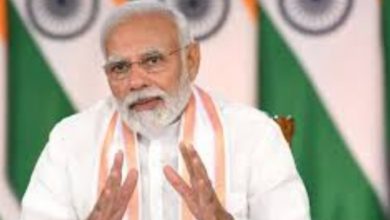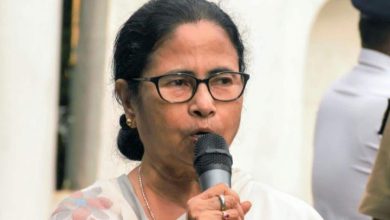China, Russia cool to US aim for more North Korea sanctions

North Korea’s test of a big new intercontinental ballic missile prompted the United States to press Friday for stiffer U.N. sanctions, but China and Russia showed little appetite for tightening restrictions that they have been trying to ease.
A day after North Korea’s first long-range test since 2017, U.S. Ambassador Linda Thomas-Greenfield urged the council to condemn the launch and encourage North Korea to return to negotiations.
China’s United Nations Ambassador Zhang Jun, left, and France Ambassador Nicolas DeRiviere, right, confer as the U.N. Security Council meet concerning North Korea test-fire of its biggest intercontinental ballic missile (ICBM), Friday March 25, 2022 at U.N. headquarters. (AP)
“It was an egregious and unprovoked escalation” that threatens the world, said Thomas-Greenfield, whose country joined Albania, France, Ireland, Norway and the United Kingdom in calling for the meeting.
Thomas-Greenfield added that the U.S. would propose a measure “to update and strengthen” sanctions. She declined after the meeting to give specifics.
The Security Council originally imposed sanctions after the North’s first nuclear test explosion in 2006 and has tightened them over the years, in response to further nuclear tests and increasingly sophicated nuclear and ballic missile programs.
Britain agreed Friday more sanctions should be considered, and several other members urged action of some kind.
But veto-wielding China and Russia proposed last fall to lift sanctions that bar their neighbor from exporting seafood and textiles, limit its imports of refined petroleum products and prohibit its citizens from working overseas and sending home their earnings.
Russian Deputy Ambassador Anna Evstigneeva said Friday that further sanctions would “threaten North Korean citizens with unacceptable socioeconomic and humanitarian problems,” while Chinese Ambassador Zhang Jun urged the council “to consider how to accommodate the DPRK’s justified security concerns.”
He suggested that the U.S. didn’t do enough to respond to the North’s 2018 self-imposed moratorium on long-range missile and nuclear tests.
“It is right and proper for the U.S. side to show its goodwill, take actions that have practical relevance and work harder to stabilize the situation, build mutual trust, and relaunch dialogue,” Zhang said. “Are they going to come up with concrete actions that can actually solve problems, or are they going to continue to use the (Korean) Peninsula as a bargaining chip in their geopolitical strategy?”
Many council members expressed alarm at the launch and appealed to North Korea to stop.
“The world can ill afford to have multiple crises at this time,” said Ghanian Ambassador Harold Adlai Agyeman, pointing to Russia’s invasion of Ukraine.





